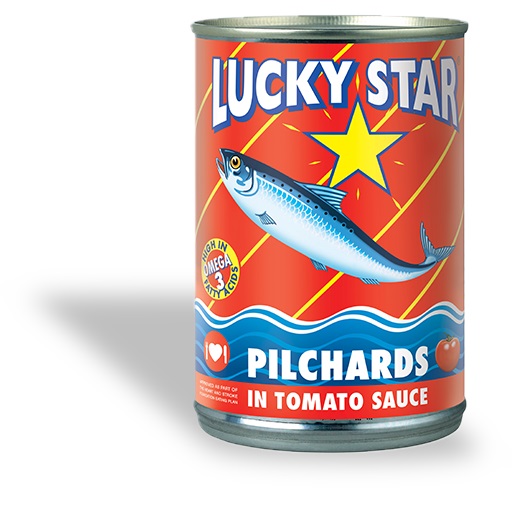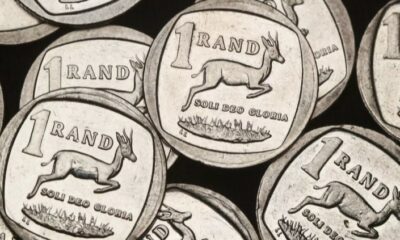Business
Lucky Star Shines as Oceana’s Profits Sink: How SA’s Biggest Fishing Giant Weathered a Global Price Storm

A tough year at sea for South Africa’s biggest fish producer
For most South Africans, Lucky Star is the taste of home, a pantry staple that’s fed generations through good times and tough ones. But behind those familiar red cans, the brand’s parent company, Oceana, has just sailed through one of its most challenging financial years in recent memory.
The trouble didn’t start in Cape Town or along the West Coast shores where many of Oceana’s workers live.
It began thousands of kilometres away in Peru, where the anchovy population rebounded, a recovery that unexpectedly capsized global fish oil prices.
When those prices halved, Oceana felt the impact instantly.
A global shock hits a homegrown giant
Oceana is no small player.
With more than 105 years behind it and operations in 36 countries, it’s Africa’s largest fishing company a heavyweight spanning pilchards, fishmeal, hake, lobster and more.
But even industry titans can’t outrun global price swings.
When the Peruvian anchovy biomass recovered, fish oil prices corrected so sharply that Oceana’s revenue dipped to R10 billion, a 0.7% fall for its 2025 financial year.
The hardest punch landed on Daybrook, its fishmeal and fish oil division operating in both the US and South Africa.
The result?
-
Operating profit down 23.2% to R1.25 billion
-
Profit after tax down 35% to R724 million
-
Headline earnings per share down 38.4%
-
Earnings per share down 38.9%
Higher interest costs only deepened the dent.
On social media, some South Africans reacted with surprise, especially given Lucky Star’s strong presence on supermarket shelves during load shedding and food inflation spikes.
Many assumed the brand was thriving across the board.
But Oceana’s global portfolio meant the storm was bigger than any local success story.
Yet, in the middle of the chaos, Lucky Star refuses to sink
Here’s where the story takes a very South African turn.
Despite the global slump, Lucky Star delivered yet another resilient performance, proving why it’s the country’s go-to affordable protein when budgets tighten.
-
Sales volumes grew 2% to 9.5 million cartons
-
Strong demand for canned pilchards and expanding canned meat options
-
Canned meat is now nearly 10% of Lucky Star’s total volumes
-
A 24% jump in carton production reduced unit costs
-
Factory upgrades in 2024 boosted production yields by 6%
In a cost-of-living crisis, Lucky Star has quietly become the survival food of the working class.
Many families even call it “the OG meal prep,” and it continues to deliver where pricier proteins fall short.
Wild Caught Seafood makes a comeback, big time
Another standout hero in Oceana’s results is its Wild Caught Seafood division.
This segment, which includes hake, lobster, squid and horse mackerel exports, posted a notable turnaround.
The star? Hake.
Investments in the company’s hake fleet paid off, with more reliable vessels allowing crews to spend more days at sea.
The numbers tell the story:
-
33% higher catch volumes
-
Lower catch costs
-
Strong European demand boosting export prices
-
Record earnings for the hake business
For coastal communities whose livelihoods rely on this sector, from fishers to processors to transporters, this rebound is more than a line item. It’s hope.
Fishmeal and fish oil: growth swallowed by global prices
Oceana’s African operations recorded:
-
25% increase in production volumes
-
36% increase in sales volumes
-
Better industrial fish landings
-
Higher pilchard trimmings
-
Improved fish oil yields
But global markets were unforgiving:
-
Fishmeal prices dropped 9%
-
Fish oil prices crashed 53%
In short: the company did almost everything right, only for global prices to wipe out the gains.
What the CEO says
Oceana CEO Neville Brink was frank about the year’s challenges but praised the teams behind the resilient segments.
“We have controlled what we can well, with most key indicators improving.”
He added that while global fish oil prices hurt profitability, Lucky Star and Wild Caught Seafood demonstrated why the group’s diversified strategy remains a strength.
Smaller profits, smaller dividend
Oceana declared a total dividend of 285 cents per share, 42.4% lower than last year.
For investors, it’s a blow.
For the company, it’s a strategic tightening of the belt.
For South Africans watching food prices and job markets closely, it’s another reminder of how global supply chains ripple through local households.
A story of resilience in an unpredictable world
Oceana’s 2025 results read like a tale of two oceans:
-
Globally, the company was hit by forces beyond its control.
-
Locally, its iconic brands and hardworking fleets kept the business steady, proving the strength of South African demand and resourcefulness.
It’s a reminder that even after 105 years, Oceana still operates in a world where nature and global markets, hold the final say.
But in homes across South Africa, Lucky Star remains the small fish that never stops feeding a nation.
{Source: Daily Investor}
Follow Joburg ETC on Facebook, Twitter , TikTok and Instagram
For more News in Johannesburg, visit joburgetc.com



























